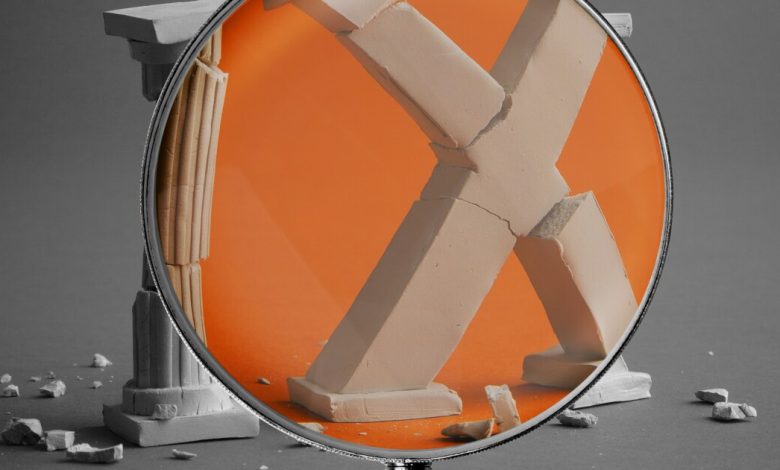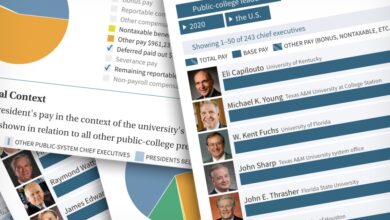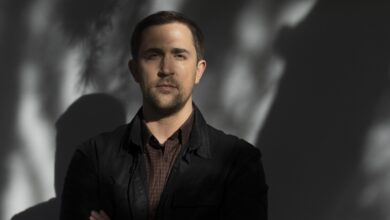The Proposed Title IX Change That Worries Some Experts

In its proposed rules for enforcing Title IX, issued last month, the U.S. Department of Education promised that it would “restore crucial protections for students” that were eliminated or weakened by the Trump administration. The 700-page document addresses broad philosophical issues, like the definition of sexual harassment, along with a host of nitty-gritty procedural matters, like whether complaints require signatures.
Among the slated changes in the rules is a return to what’s known as the “single investigator” method of conducting inquiries, in which, as the name suggests, a complaint is often handled by one administrator. In 2020, Betsy DeVos, then secretary of education, put an end to that approach, announcing that those accused of wrongdoing must be allowed to challenge the evidence at a live hearing, a move DeVos deemed necessary in order to “ensure a fair and transparent process.”
Removing the requirement for a hearing might be the most significant of the Biden administration’s proposed reforms of how the federal gender-equity law is enforced, and the one with the greatest potential to alter how colleges carry out Title IX investigations. It’s also troubling to some Title IX experts. S. Daniel Carter, a longtime victims’-rights advocate who helped develop the Campus Sexual Violence Elimination Act, is among those who think the single-investigator model is misguided. “It’s really the single-adjudicator model,” he says. “What you’re doing is allowing a single person to be in charge of everything, with no oversight until you get to the appeal. I think that’s crazy.”
Carter believes that “the best model for any student disciplinary hearing involving an alleged crime should be a live hearing.”
Janet Halley isn’t a fan of the proposed change either. Halley, a professor of law at Harvard, has criticized her own university’s sexual-misconduct rules, as one of the authors of a 2014 open letter that chastised Harvard for “jettisoning balance and fairness in the rush to appease certain federal administrative officials.” When it comes to balance and fairness, she thinks having a single investigator doesn’t get the job done. “One of the dangers is that a person develops views about what’s going on in a case, and that colors what they ask and what they hear,” she says. “The fact that a single investigator makes a decision from which appeal can only be taken on limited grounds — I just don’t even understand how a person could sleep at night with that kind of power.”
I just don’t even understand how a person could sleep at night with that kind of power.
The concern is usually that a single investigator, the one with all that power, will be biased in favor of the accuser. But that’s not the only worry, according to Alexandra Brodsky, a lawyer who focuses on sexual and racial discrimination. “I’ve heard complaints about this not just from respondents but from victims as well,” she says. An example of such a complaint is an investigator who believes certain rape myths that could cause him or her to unfairly dismiss a victim’s allegations. In her book Sexual Justice: Supporting Victims, Ensuring Due Process, and Resisting the Conservative Backlash, Brodsky refers to the single-investigator approach as one that “many advocates on all sides” have criticized.
The method does, however, have its defenders. Nancy Chi Cantalupo, an assistant professor of law at Wayne State University who was a consultant for President Barack Obama’s task force on campus sexual assault, thinks “single investigator” is a misnomer. In many cases, she says, more than one administrator is involved in an investigation, even if there is no formal hearing. She prefers the phrase “civil-rights investigator.” Cantalupo has written that hearings can be needlessly adversarial, can “compel the parties to attack each other’s credibility and evidence,” and are “less likely to create openness to restorative justice.” One argument for avoiding hearings is that they’re thought to be traumatic for victims and might discourage complaints from being filed in the first place.
Cantalupo has found in her research that administrators whose institutions ditched hearings reported that they were satisfied with the switch. In her view, the Trump administration’s mandating of live hearings was a mistake, and she’s eager for the policy to be wiped from the books. “I’m thrilled to see that the Biden administration and these proposed regulations are going to make it possible for the civil-rights-investigation model to be used again,” she says.
Those who favor hearings say the details matter in how they are conducted. Halley, for example, doesn’t think witnesses should be directly cross-examined and instead believes it’s better for questions to be considered by members of a panel before they’re asked. Carter notes that some colleges have allowed parties to testify remotely so that they need not be in the same room. “If it’s carried out in a conscientious way, it doesn’t have to retraumatize the complainant,” he says.
Unlike Cantalupo, Joe Cohn is less than thrilled by the possible return to single investigators. Cohn, the legislative and policy director for the Foundation for Individual Rights and Expression, a group advocating free speech, points to a number of lawsuits in recent years in which judges have ruled that students shouldn’t face serious discipline without a hearing. One judge, in a lawsuit brought against Brandeis University in 2016, declared that the “dangers of combining in a single individual the power to investigate, prosecute, and convict, with little effective power of review, are obvious.”
Cohn doesn’t deny that live hearings can be more stressful for everyone involved or that they can create an additional administrative burden for colleges, which can be particularly onerous for smaller institutions. But he argues, given the possible consequences in such cases, it’s a trade-off worth making. “When it comes to finding out what’s true,” he says, “we shouldn’t be taking any shortcuts.”
Source link






